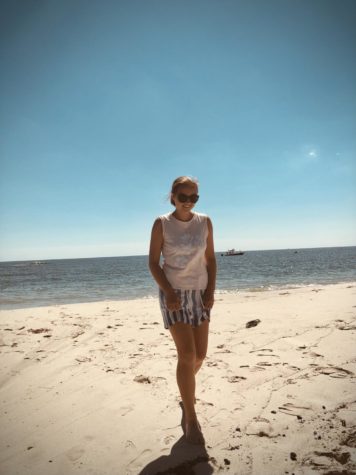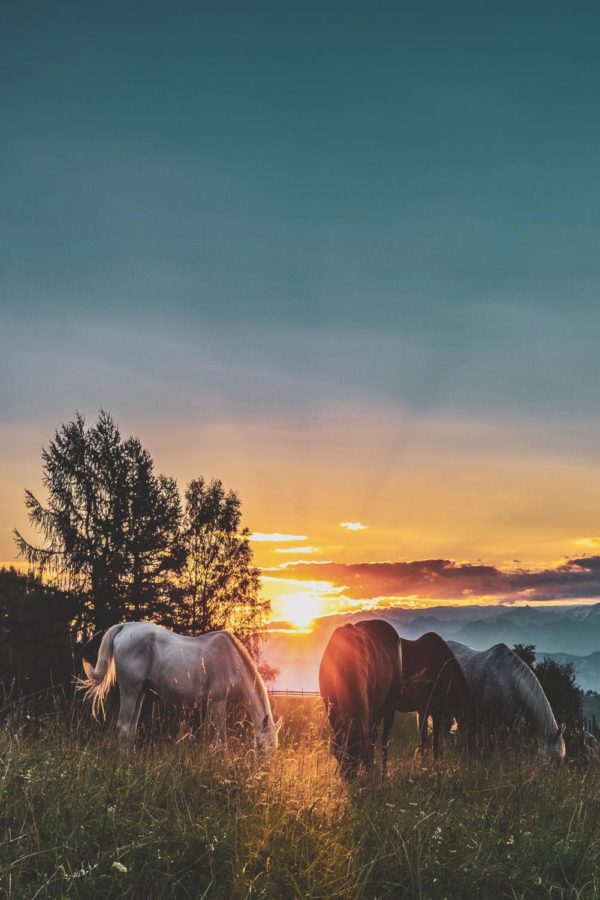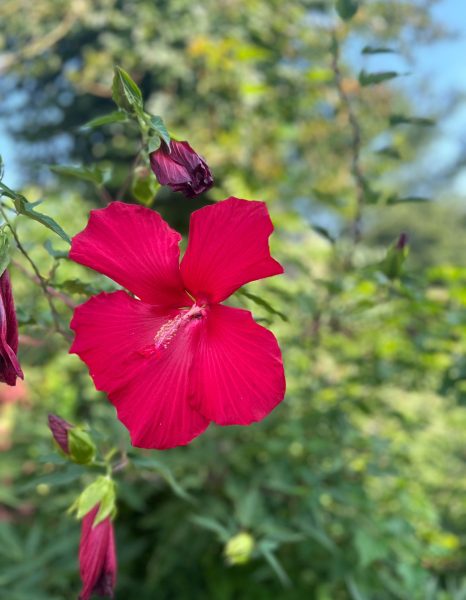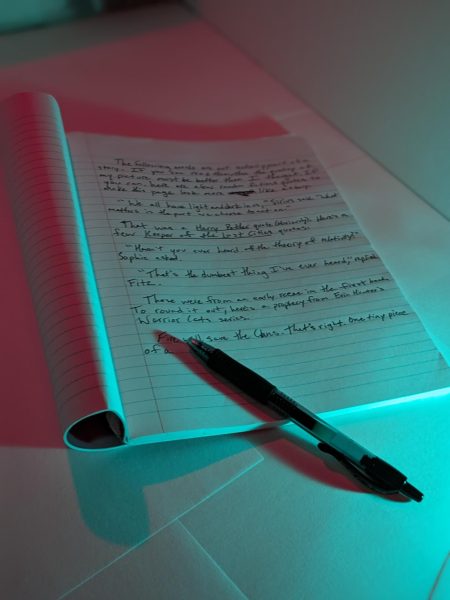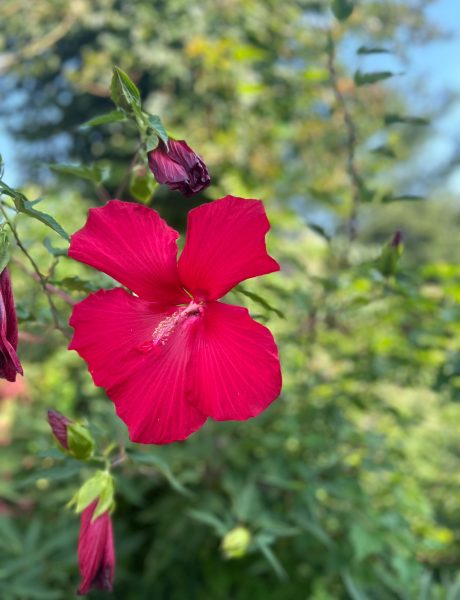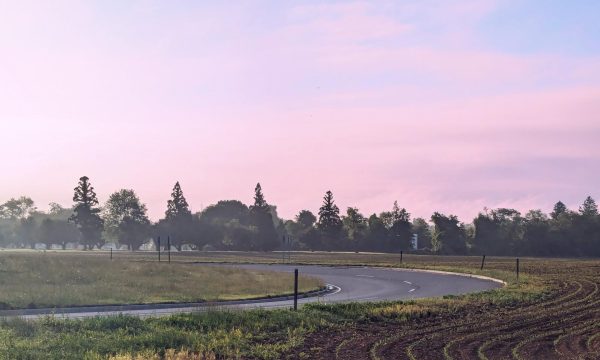Never to Return Chapter 1
1
Take me back where I came from,
Another hour on another sun’s path,
With trees more gold and wind less cold,
Where leaves are dead and I’m alive.
Yes, to sit in them,
Prickled and twitching, soft and smoky,
To stare up at the sky and make it promise never to change,
And to close my eyes when it breathes its pity lies,
And to let the breeze blow me away.
Oh, to lie among the leaves again,
I needn’t wait long,
For my autumn approaches,
And soon the hallows and I will take to the golden evening,
And fly out like the geese,
Into the cold blue gray,
Never to return.
Frowning, Harriet Foster – Harrie, as she preferred to be known – tried her best to wipe the shadowy ink off her palm. If she didn’t smear it all off soon enough it would dry and stain, and then Father would see. Oh, well. She supposed it served her right for stealing – she knew his fountain pen was only for special occasions.
Harrie, of course, had assured herself that writing her magnum opus was a special occasion. She’d been sure since the age of five that one day she was bound for glory – and today, here in the barn, at age thirteen, she was sure she’d at last found it. The big one. The poem that would one day make her famous, the one everyone in Virginia would know by heart. That was a more than valid reason for her thievery.
Harrie shifted her feet out from beneath her. She’d been knelt on the barn floor so long her legs had grown heavy and numb. As she stood the skin of her thighs peeled off of her calves, red and sticky with sweat and the moisture of Indian summer.
Dolly whinnied angrily in her stall, beating her tail against the door and sneezing as a cloud of dust swirled around her. A fly landed on Harrie’s arm, meandering around for a moment before settling. Harrie took pride in her new tenant. Her mother and sisters couldn’t last a second with a fly on them.
After a few minutes, though, her arm grew tired of holding still in the air. And after all, she’d been bold and brave long enough. She flung her little guest off, and when it refused to leave, smacked it away, the snapping sound echoing through the tall upper corners of the barn. Harrie said a swear word, spat to the side, and then giggled at herself for it. What a relief it was to be here in the barn – here, where she was free to engage in whatever “boyish behaviors” (in the words of her mother) she pleased.
Harrie was a very pretty young lady – or young woman, as she preferred – having just reached thirteen a few months ago. She had wild brown curls, with a hint of red, that never quite stayed put in her plait. She had slightly elvish ears, a slender, pointed nose, and thin lips that she always licked until they chapped in the winter. Her chocolate eyes burned with an air of sophisticated intensity, and when she blinked you’d swear you could hear them crackling.
Her nose was dusted with freckles the same color as her hair. Mamie joked that she gained one for every birthday. Her fair skin grew pink at the beginning of every summer, but by the end always darkened to a deep brown. Mother scolded her for it, warning her she was turning the same color as the dirt.
Today, as usual, she was blatantly ignoring her mother’s orders, taking advantage of the early October sun to warm and brown herself as she waited out the afternoon. She took breaks in the shade of the barn, hoping she’d be able to make it all day without needing a drink of water. Her goal was to stay until sunset. And she was sure to make it. It wasn’t like Mother or Father would ever come looking for her anyway.
According to Mamie, the eldest, Mother and Father used to be much more in love with their daughters. She told Harrie and little Jelly over and over again, stories of how their afternoons used to be. How Mother and Father spent their every minute nursing, feeding, singing to, playing with their three angels.
Harrie and Jelly were too young to remember any of it. Mamie had always been more of a mother to them than Mother herself, though she always insisted that Mother and Father still cared ‘deep down somewhere’. When Jelly had asked why they were always so cross, Mamie told her it was like Mother and Father had locked their feelings up in a big box. Harrie was beginning to think they’d lost the key.
Nowadays Mother only spoke to them if she was ordering them around, making sure they were keeping up with chores, that sort of thing. Father didn’t seem quite so strict as simply tired. He hadn’t left his rocking chair in years, Harrie swore. He’d retired from farming a few years ago, giving the duties over to the cranky old geezer living on the nearest farm several miles away. Now Father spent his days rocking back and forth, poring over his old farmer’s almanac and whispering nonsense to himself. If his daughters came in late he raised neither his voice nor his hand. He was too tired.
But Harrie didn’t mind. In fact, she enjoyed her freedom. The only person that controlled Harrie, she liked to say, was herself. She might take Mamie’s advice for consideration, but Harrie was growing up fast, and soon it would be time for her to seek her own fortune, away from Mother and Father. She longed for that day…
Another fly landed on Harrie’s magnum opus, and she swiped it away. Then bit her lip. The fly didn’t care who she was, what she did, or what she remembered. It was just a silly insect – and yet there it was, its innocent meandering reminding her of how insignificant she was. It didn’t care what genius it was landing on, how important it would one day be; it couldn’t tell brilliance from scribbles. It would visit a million more magnum opuses until one day it died. The thought of it made her feel very small.
Harrie looked at the poem again. Was there anything more to add? With each piece she wrote, she seemed to find one more thing that was missing. Her last lines always felt incomplete. As if that couldn’t be the end. Harrie was beginning to wonder if there was any correct way to end a poem. If there was, she certainly hadn’t figured it out yet.
She worried her last line on this one was a touch too dramatic. But the poem was supposed to be dramatic. She could have Mamie read it later. Mamie gave good advice, despite insisting she could never write a poem herself. Jelly, on the other hand, couldn’t be trusted with it. For one thing, she wouldn’t understand – and for another thing, she’d tell Mother and Father.
Mother had found a poem of Harrie’s once before, and Harrie hadn’t forgotten it since. She’d been keeping in on the table between hers and Mamie’s beds, and Mamie had loved reading it. She was certain Mother would too. Mother always used to read to them from her big book of poems, and she often had a book propped open on her lap when supper was in the pot and the girls were coming inside.
Harrie hadn’t offered this poem to Mother. It had been discovered, one day when Mother was searching for her best sewing needle. Harrie had been out (spoiling her complexion wading in the lake, no doubt), and had come home sopping wet to a furious mother, who’d thrown the beautiful work into the fireplace as Harrie watched. She’d brought out Father’s whip that night. She hadn’t even read it.
Mamie had at least been sympathetic, holding Harrie tight and wrapping her bleeding hand in her silkiest hair ribbon. Mamie had also offered to help hide Harrie’s other poems, stashing them in the bottom of her wooden chest and covering them with blankets. Mother, even now, trusted Mamie with anything. Mamie knew where the key to the chest was; Mother didn’t. So Harrie’s masterpieces were safe.
Dolly whinnied for attention again, blinking her black eyes that pointed out in opposite directions. When Harrie was little she thought the horse looked quite silly, what with the bit lodged between her teeth when they took her riding, her crossed eyes, and the clunky horseshoes she used to wear. But nowadays Harrie thought Dolly’s eyes made her look rather clever. She spent a lot of time wondering whether horses were smarter than humans, whether perhaps they were just wise enough to never show it.
Harrie at last rose, quickly folding the crackly paper and stuffing it into her white stocking. She reached for a pearly sugar cube from the pail that hung on the wall and brought it to the horse, who whinnied upon recognizing it.
She held it near Dolly’s nose, but before Dolly could reach for it with her teeth Harrie pulled it away, inciting a whinny and an indignant stomp. Dolly sneezed, and Harrie giggled. She liked to tantalize Dolly just a little bit, several more times moving the cube closer and then farther away again.
Finally, though, Harrie gave in, giggling again as the horse’s prickly tongue tickled her finger and slurped up every last crumb of sweet sugar.
As Dolly gulped down her treat, amidst the muffled sounds of her chewing Harrie heard the little footsteps padding closer through the tall grass. They paused, then resumed, stomping up the wooden barn steps, and at last a fist urgently rapped on the closed back door.
Harrie smirked to herself. She knew exactly who was on the other side, Meandering over, she gave a very audible yawn as she took her time creaking the door open – much to the dismay of the little girl behind it. As soon as there was room, the child shot in and bolted to the other corner of the barn, trying in vain to conceal herself in the shadows.
Jean – Jelly to everyone – her mouth stained bright purple, clutched a basket of blueberries tightly to her chest, just as if it were a precious doll. Upon further inspection, Harrie noted that the basket was only half full.
Jelly’s grin brimmed with mischief, her purple lips curling as her eyes flashed with a playful fear. She shook her head as her sister opened her mouth to speak. “Harrie, don’t-”
Another knock on the barn door. Jelly tried her best to squeeze her little five-year-old body even farther back into the shadows. “Don’t let her get-”
An older-sounding voice, sweet yet strong, called in from behind the door. “Harrie! Let me in-”
“No! Don’t let her!”
But Harrie had already opened the door, and in slipped calm Mamie, eyebrows raised as her gentle blue eyes located her littlest sister in the corner. She took a deep breath, hands on her hips as she shook her head in adoring disbelief.
She turned to Harrie. “What are we going to do with her?”
Harrie shrugged, welcoming Mamie’s embrace as she took her into her slender arms. Mamie twirled Harrie, finger-combing the escaped hair away from her face. Harrie closed her eyes and breathed in. Mamie always smelled of warm vanilla. Harrie herself wasn’t sure she had a smell – but it was probably dirt or horse or something unpleasant.
Mamie rested her soft chin on Harrie’s shoulder, turning so she could see her littlest sister clearly in the corner.
“You can come out when you’re ready, Jelly.”
They heard Jelly snicker, then saw her little feet emerge into the light, until at last she revealed herself. Mamie laughed. The purple stain around Jelly’s mouth betrayed any alibi she could possibly conjure. Mamie let Harrie go, hands returning to her hips. Jelly stared at the floor, basket held perfectly symmetrical between her little hands.
Mamie raised her eyebrows again. “Jelly.”
Jelly’s big brown eyes widened, the coy smile never leaving her little mouth.
Mamie at last sighed. “Did you at least have enough to eat?”
Jelly hesitated, then nodded softly, making to wipe her mouth with the bottom of her pink skirt.
“Oh no, no, sweet-” Mamie hurried over, instead drawing a frayed handkerchief from her pocket and cleaning her sister up. “Don’t go staining that dress. It’s your best one. You’re prettiest in pink, you know.” Jelly beamed, shy but grateful as Mamie finished. “Anyway. You know what Mother would say?”
“What?” Jelly’s eyes widened excitedly, as if she was about to be let in on a secret.
“Well…” Mamie thought better of it, frowning as she continued to wipe the purple juice form Jelly’s fingers. “Nothing. Never mind.” She knelt to Jelly’s level, opening her arms once again and hugging the little girl tight.
“Don’t tell Mother, will you, Mamie?”
Mamie shook her head, making sure Jelly was watching her eyes. “I won’t.” Jelly knew then that she wouldn’t. Mamie’s words carried an unmatched potency, a solid sincerity that was sometimes frightening in how genuine it was.
Before long, though, Mamie’s lips slipped up into a smile again. “But you’d better think of a good reason why that basket is only half full. Mother will be wanting those berries.”
Jelly pondered a moment. “Harrie can figure it out.”
“Harrie didn’t eat the berries.” Mamie stood, running a hand over her silky brown hair, still effortlessly tucked into its bun even at day’s end. “Come on. We were supposed to be inside by now.” She angled her head out the open barn door; the sun only hovered a pinch above the horizon.
Harrie came to Jelly, pulling her blonde pigtails tight, brushing her fingers through the knots. Jelly, like her, had a generous dusting of freckles, the same dark brown eyes, and little elvish ears.
But aside from that, Jelly was not very much like Harrie at all. Nor was she very much like Mamie. No sister was quite like either of the others. Perhaps that was the reason they all got on so well.
“Come, Harrie! Come fly!” Jelly, knowing she was forgiven, sped off down the creaky steps and into the cornfield outside, extending both her little arms like airplane wings, tilting left and right in the breeze. Mamie joined in, calling after Jelly as she flew. Before long they were submerged in the sea of corn, and all Harrie could detect of them was the muffled sound of stalks snapping and little voices cheering.
At last Jelly’s flushed face emerged from the edge of the field. “Harrie!”
With a sigh and a good-natured roll of the eyes, the third at last followed into the jungle. The cooling wind swam over her skin, caressing her shoulders and swirling all down her arms. It sang through her fiery hair, echoing through her ears. The sweet scents of corn and autumn lingered in her nose, making her mouth water. She only wished she could lay down in a bed of tall stalks and never be thought of again.
And there, all too soon, was Mamie at the back edge of the field, an authoritative hand beckoning them in, the other hand responsibly clutching the berry basket. “Sun’s coming down! Where’s Jelly?”
—————————————-
By the time all three of them had made it across the field to where they could see the house, the big moon had risen up to the tall tree. Its light shone through the changing autumn leaves, making the whole tree glow orange and casting the ground below in an eerie white light.
Mamie led them up the dusty wooden stairs, taking small ladylike steps as Jelly, clutching her hand, stomped up beside her. Harrie clunked up behind them, checking before she went in that her poem was still secure in her stocking, high enough above the hem of her dress so that it wouldn’t be seen.
Just then, she remembered she’d left Father’s fountain pen in the barn. She’d have to get it tomorrow. She was probably safe, anyway. Father never wrote anything.
“Harrie?”
Mamie was watching her, her expression neither puzzled nor impatient. It was just gentle Mamie, waiting for her to come in when she was ready. Sweet Mamie, whose cornflower eyes and loving embrace were the only two things that made Harrie feel she belonged here.
Mamie shooed Jelly in before leaning over and lowering her voice.
“Remember, poem in the treasure chest. Key’s in the book on my bed.” Mamie’s only book, and she used it to keep Harrie safe. Mamie nodded once more for confirmation, and Harrie nodded back.
But, as Mamie followed Jelly in with the basket, to the weak fire and bland supper that no doubt awaited them, Harrie was thanking her silently, hoping that somehow she would know.
